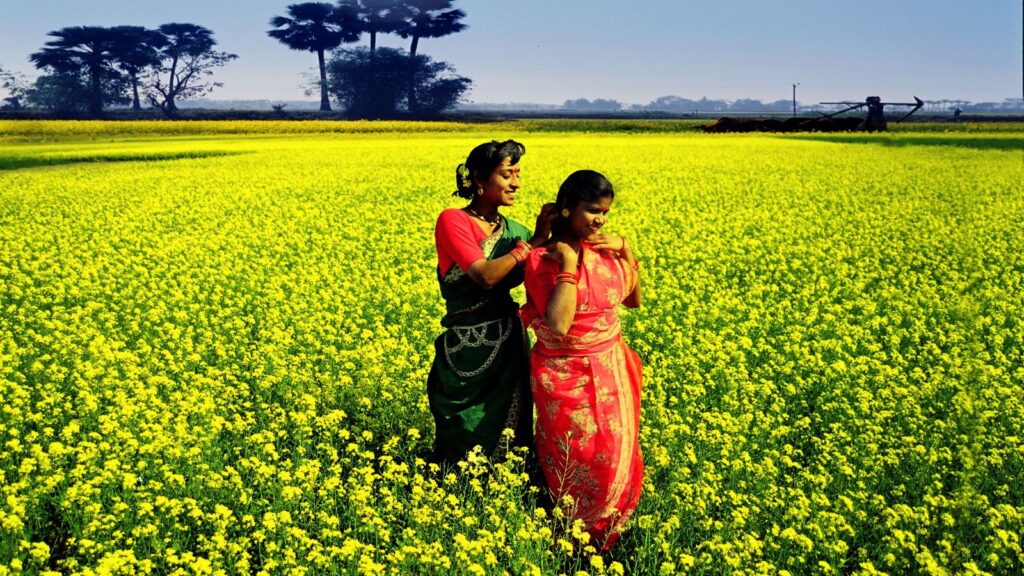How Can Bangladesh Boost Growth and Resilience by Investing in Women
Over the past few decades, Bangladesh has experienced an economic ‘miracle,’ transforming from one of the poorest countries in the world into a rapidly developing economy. A key factor in this success story is the significant rise in the number of women entering the workforce. From factories in the garment industry within urban centers to the paddy fields of rural Bangladesh, women have become central to the country’s economic activities. This progress has not only bolstered the economy but has also empowered women to reshape their lives, breaking through cultural constraints and exploring new opportunities. Alongside these societal advancements, modern platforms like https://elook.org/en-bd/casino/banger/ have emerged, offering not just entertainment but also showcasing the nation’s shift towards embracing digital and global trends. This convergence of traditional roles and contemporary aspirations highlights the evolving fabric of Bangladesh’s society.
The Rise of Bangladeshi Women-led Businesses in the Garment Industry
Bangladesh is dependent primarily on the ready-made garment (RMG) sector as it amounts to over 80% of the country’s foreign exchange earnings. It is less known that the sector has largely been propelled by women, as women make up about 80% of the garment factory workforce. From the mid 1980’s when the favorable conditions for this industry’s development begin to be evident, many young women from villages stream into cities such as Dhaka and Chittagong. Such women secured jobs in the clothing factories and were often the sole breadwinners in the families.

In spite of unattractive pay and deplorable working conditions of the garment sector, women in the industry have played a key role in overcoming such hurdles and made Bangladesh the second largest apparel exporting country after China. Their hard work has not only resulted in the acceleration of development in the country but also, progressed and developed tens of hundreds of families, making them more prosperous, thus, giving an opportunity for children to receive proper education, clinic services and live in better conditions.
Microfinance Sector: Female Entrepreneurship Opportunities
The use of micro-finance as an approach to the poverty structure which was formulated by the Nobel Prize holder, Dr. Muhammad Yunus at Grameen Bank has seen positive strides more especially with women in Bangladesh. According to Joshi, female entrepreneurs are essential to the economy and they contact nonprofit micro-financial institutions. Such loans have allowed them to set up businesses like: tailoring, beads making, animal rearing and retail shops. These loans have allowed women to become entrepreneurs some of whom have businesses in activities such as tailoring bead making animal rearing and retail shops.
It has benefited millions of women in Bangladesh by allowing them to gain monetary freedom and respect within the family circles. The impact of women success has led to more women becoming entrepreneurs and greatly contributing to the economy of the rural areas. Currently, women are the leading shareholders who take micro credit in Bangladesh, a country that has been known for its poor image and malnourished citizens.
Participation Rate of Women in Agriculture: The Backbone of Rural Economy
Agriculture is one of the most important sectors in Bangladesh which employs almost 50 percent of the working population of the country. Rural women have engaged in various farming activities such as ploughing planting harvesting and livestock and poultry production as well as food processing. The agriculture sector is mostly male dominated, but women’s engagement in agriculture has dramatically increased productivity.

In many rural societies, women are usually the ones in charge of household farms and are able to work in agriculture together with struggling to carry out home chores. Their participation has been significant in the evolution of sub-sistence farming into less demeaning and profitable enterprises. Women have received agricultural training and credits and used modern agricultural technologies, increasing their productivity, and participation in the rural economy.
The Impact of Education and Skill Development: Strengthen & Empower Women
Education has emerged as an enabling factor for women and for engaging them in economic activities. The country has improved women’s literacy and educational attainment and today more girls go to school than ever before. Government programs, NGOs and international partners’ initiatives have exerted positive impact on the increase of enrollment in schools and the decrease of inequalities in education.
Education and occupational training programs have also been useful in getting women ready for employment. BRAC, the world’s leading NGO, has gone ahead to teach women sewing, computer tabs and financial management to help them level up in finding jobs or creating their own. Such programs have not only taught women skills.
Bangladeshi Women in Leadership and Corporate Roles
Bangladesh made remarkable progress with regard to women in leadership positions in business, politics, and public administration in recent years. More and more women are becoming corporate chairpersons, directing charities, and taking occupational posts in government and creating new horizons for posterity. Many women took women’s issues and leadership positions because of inspirational female leaders like Prime Minister Sheikh Hasina of Bangladesh, who is a supporter of women’s cause and gender equality principles.
What is more, the corporate women’s turn has also greatly improved. The world workforce is welcoming more women who are taking up roles in formal employment institutions like tables of banks, information and communication technology, medicine, and many more. There is a growing awareness in organizations in Bangladesh regarding the benefits of gender equality at the workplace, resulting in many organizations creating corridors for women to join the organization or grow up in it.
The Digital Economy Revolution: Advancing Sustainable Development Goals for Women in Technology
The revolution in Bangladesh has created great opportunities for women particularly in technology, outsourcing, and online business. Women can now find employment at home, build their websites for business, or provide international services as freelancers with the expansion of the internet and growth in computer skills. Women have been able to access promove domestically secluded business.
The same applies to the e-commerce sphere in which we have seen the emergence of women entrepreneurs who open online shops and advertise their goods via social networks. Such a change has helped female business persons to get around the conventional huddles in business enterprise like movement, access to investment, among others as a result of which they are able to grow their businesses through reaching out more customers.
The Impact of NGOs on The Women’s Empowerment in 2024
Non-governmental organizations in Bangladesh have been in the forefront as far as the rights and the economic advancement of women in that country is concerned. There are programs which have been established by organizations like BRAC, Grameen Bank, the Association for Social Advancement (ASA) which reach out with education, health care, legal assistance or financial services to women. These related developments have enabled women free themselves from vicious poverty and dependency cycles as they have been enabled to improve their lives.
NGOs have also placed strong emphasis on women’s issues and have worked to help end problems such as child marriages, violence against women and discrimination. Using the community, legal and awarness strategies, the campaigns have relentlessly fired wars to end the injustices in the society that limits the growth of women.
Investing in Women: Challenges and Future Directions
Nevertheless, notwithstanding the significant development registered, the picture is not rosy for women in Bangladesh, who still contend with issues such as gender bias , wage gaps, and few government chances to satisfy women’s leadership ambitions. Even within the workforce, some women, particularly in rural locations, still impose restrictions on the development or application of their skills due to societal and conventional obligations. As these factors inhibit women’s empowerment, its important to focus of such changes at individual, government, private sector, and civil society level.
Some measures, for example, the adoption of policies ensuring equal pay, the increase in the number of child care units, the provision of a safe working environment are necessary in order for women to participate in the economy fully. Furthermore, there is also a need to encourage the next generation of women into education and skills, particularly in STEM, as they would be able to help fill these future jobs that are high-paid.
Final thoughts
A woman’s contribution to the economic miracle in Bangladesh is a story of her resilience, resolve, and an ingrained ability to be creative. There have been women from all walks of life in Bangladesh, from garment workers and farmers to business women and corporate executives, who have played leading roles in the changing face of the nation and aided the fast and extensive development of the country. Women’s journey to success is not only a matter of providing an economic return – it is about turning heads and rewriting the story for generations of women who will come after them.
Still, as Bangladesh continues to ascend, women’s empowerment will always be at the heart of sustaining the country’s economic ascendancy. Bangladesh is in a position to harness its full capability and potential by letting women to get involved across all sectors of the economy which in turn will bring about more advancement in the country and benefit the society as whole.



